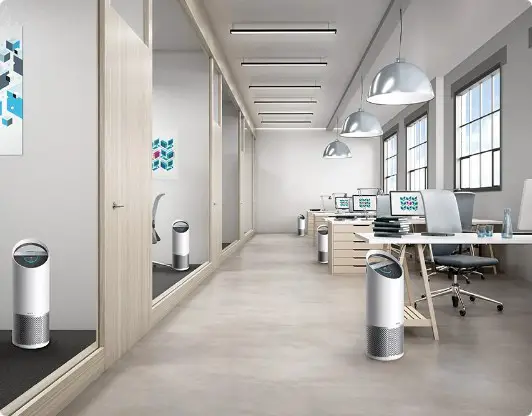Air purifiers are one of the most effective ways to eliminate odours and pollutants from your home. But they can also be one of the most expensive household items, so it’s important to know what you’re paying for when you buy one. Finding the ideal air purifier for your home can be challenging as there are so many different air purifiers on the market today, which means there are many different brands and features to choose from. Here are some of the most frequently asked questions about air purifiers, along with the answers, to help you choose the best model for your needs.
What benefits can air purifiers provide?
Air purifiers can collect pollutants and neutralise nasty odours in your home and office, giving you a cleaner and healthier environment, especially if you have pets. It can also reduce the amount of harmful fine particles in the air at home while being energy efficient and environmentally friendly. Hence, the main benefit of using an air purifier is that it helps to reduce dust and odours as well as improve the air quality in your home, which is also beneficial for people with allergies and asthma.
Can an air purifier help with allergies and asthma?
Air purifiers are often recommended to help with the symptoms of both allergies and asthma. Air pollution and other airborne irritants frequently serve as triggers for both medical conditions, so improving air quality at home can help. HEPA filters are particularly effective at removing dust and other airborne pollutants and even pathogens that cause allergies and asthma. Many people who suffer from dust-mite allergies may also notice a reduction in the frequency of allergic symptoms like coughing, sneezing, or congestion when using an air purifier.
Which types of HEPA filters are most effective?
High-efficiency particulate air (HEPA) filters are the highest quality type of filter available on air purifiers. They are between 99.3% and 99.99% effective at eliminating particles that are 0.3 micrometres in size or smaller. Although HEPA filters are the best air filters available, they do have some limitations.
Depending on the size of the air purifier, they may not be as effective in larger spaces as most are better suited for small areas such as bedrooms. Ultra-HEPA filters or ULPA filters are some of the most effective air filters on the market, as they can trap up to 99.999% of particles 0.3 microns or smaller. However, these types of filters can also be more expensive than medium-filtration HEPA filters, which remove 99.3% of airborne particles up to 0.3 micrometres in size.
Should you buy a UV-C light air purifier?
UV-C (short for ‘ultraviolet-C’) light is designed to use short-wave UV light to reduce airborne pathogens and microorganisms like mould, bacteria and viruses. Air purifiers that use UV-C light are intended to eliminate organic air pollutants indoors, but they are known to be less effective than those that use a HEPA filter.
As a result, you don’t need to purchase a UV-C light air purifier, particularly if it doesn’t have a tried-and-tested air filtration system like a HEPA filter. If the air purifier has a HEPA filter, that should be sufficient because it is 99.97% effective at removing airborne particles 0.3 micrometres or smaller.
Does an air purifier make your house smell better?
Air purifiers are great for removing odours, but they won’t change the smell of your house whatsoever, because they are designed to improve indoor air quality. Many people use air purifiers during peak pollen season or when there is a significant spike in air pollutants outside. Hence, air purifiers are effective at removing particles, but they don’t change the smell of air inside your home. You can add some fresh flowers or scented air fresheners to your home along with an air purifier if you want to improve air quality while making your house smell better.
What kind of air purifier should I buy?
When it comes to buying an air purifier, it’s important to consider your individual needs. The best air purifier for you will depend on the size of the room, the type of pollutants you wish to remove, and your budget. It’s a good idea to start by researching different types of air purifiers and comparing different sizes to find the best fit for your house.
If you leave your windows open throughout the day or if you have many pets, you should choose an air purifier that has the highest Clean Air Delivery Rate (CADR) for the size of the room. You can get air purifiers with a True HEPA filter, as these are the most efficient at filtering out dust and organic pollutants indoors.
If odours are of concern, make sure to choose an air purifier with an odour-removing filter such as an activated carbon filter. Or, if you have a big home, you might want to consider purchasing a more powerful air purifier designed for a large space. You should also consider the noise levels of the air purifier, as some can be quite loud. By following these tips, you can find the best air purifier that best suits your individual needs.
Final words
Air purifiers are a great way to improve the air quality in your home, especially during the pollen season or when there is a spike in poor air quality outdoors. Before you buy, you can also look up the rating of different air purifiers on sites like Consumer Reports to see how they all compare. These ratings can help you decide which model is best for your home.


















